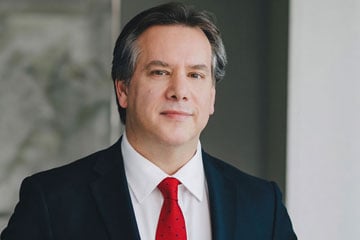This week, the City of Toronto is launching various legal challenges to Ontario Premier Doug Ford’s bill to cut the number of councillors by almost half, and some candidates and citizens say Bill 5 is a violation of their Charter of Rights and Freedoms.

On Monday, the City of Toronto voted 27-15 to legal challenge Bill 5 and “exhaust all legal means” to challenge the province’s legislation, including appeals.
A hearing date has already been set for Aug. 31, when the city’s lawyers will join others who have already launched legal challenges against the province.
When contacted by Legal Feeds today, Wendy Walberg, practice lead, legal services at the City of Toronto, deferred comment to after the hearing date.
But municipal law expert John Mascarin says the city has an uphill battle with previous similar challenges failing before the courts.
“I think their [the City’s] chances are going to be very minimal,” says John Mascarin, municipal law lawyer and specialist at Aird & Berlis LLP. “There is clear precedent from what happened 20 years ago on the amalgamation of the former Metropolitan Municipality of Toronto and the six municipalities at the time.”
In 1998, the Progressive Conservative government of Mike Harris was also looking for economies of scale and proposed the mega-city, bringing together metro Toronto and six municipalities — East York, Etobicoke, North York, Scarborough, York and the City of Toronto.
With amalgamation, however, there were studies, reports and public opinion polls and, while most said they didn’t agree, the province still went ahead with it. It was challenged and the Ontario Superior Court said the province had constitutional authority to do what it did and it was upheld by the Ontario Court of Appeal.
“I would have thought the exact same thing would have applied here with just a couple of nuances,” says Mascarin.
The nuances are that the City of Toronto Act has a requirement for consultation for anything that would affect the powers and authority of the City of Toronto.
“In that case [amalgamation] at least, there had been public notice beforehand. Here, on the eve of nomination day, the province comes in and changes the rules,” says Mascarin.
“I’m not sure the court will say the province is without authority to do it. The timing may be really bad, but I don’t think the court would decide differently,” he says.
A majority of council also voted to seek to postpone the upcoming municipal election if a delay becomes necessary in order to carry out the legal challenge.
Mascarin says s. 1 of the City of Toronto Act that spells out that consultation between the province is in the best interest of both parties may provide some opportunity for victory.
“I would have thought that instead of three weeks ago at the council meeting talking about a binding referendum, they might have said let’s have at least one great legal ground to challenge, which is s. 1 of the City of Toronto Act, and they didn’t really proffer that very strongly,” says Mascarin.
“However, perhaps it will be won on a Charter infringement — the right to vote under s. 3. The Supreme Court of Canada has said s. 3 carries with it the whole question of fairness and right to representation. Right now, if you slash council by half, where is your effective representation?”
On Monday, Goldblatt Partners announced it is representing three applicants in a legal challenge to the bill: candidate Chris Moise, a gay black man who was running in a downtown ward that included the Gay Village; elector Ish Aderonmu; and Prabha Khosla, a representative of the organization Women Win TO, which supports women looking to run for municipal office.
They are arguing that the legislation violates equality rights in the Charter of Rights and Freedoms, saying the bill has an “adverse impact on women and racialized and LGBT candidates.”
The application alleges that changing the rules and the scope of an election in the middle of the election violates ss. 2(b), 2(d) and 15 of the Canadian Charter of Rights and Freedoms, as well as the unwritten constitutional values of the rule of law and democracy. The applicants will ask the court to strike down Bill 5 and allow the election to proceed under the previously determined ward boundaries.
The applicants will also ask the court to hear the application at the same time as any other challenges to Bill 5.
Mascarin questions the benefits of reducing council. “Ford keeps saying there is going to be $25 million in savings, but there’s nothing to substantiate that.
“He just seems to continue to tout that, but I don’t see the savings. Even if you add up the salaries of the 22 council members that will go by the wayside, who is going to have to take that over — the other council members who will have to hire more staff,” he says.
“To me, it’s the reverse of what happened 20 years ago. It’s not that bad of an idea, but the timing is terrible. But maybe that was part of the game plan. It’s really them thumbing their nose at the council.”
There’s also the issue of what all of the legal challenges will cost the city in the end.
“They do have the in-house expertise to do this and if going external it would be for constitutional and pure litigation advice,” he says.










